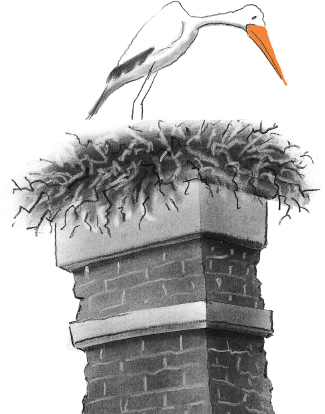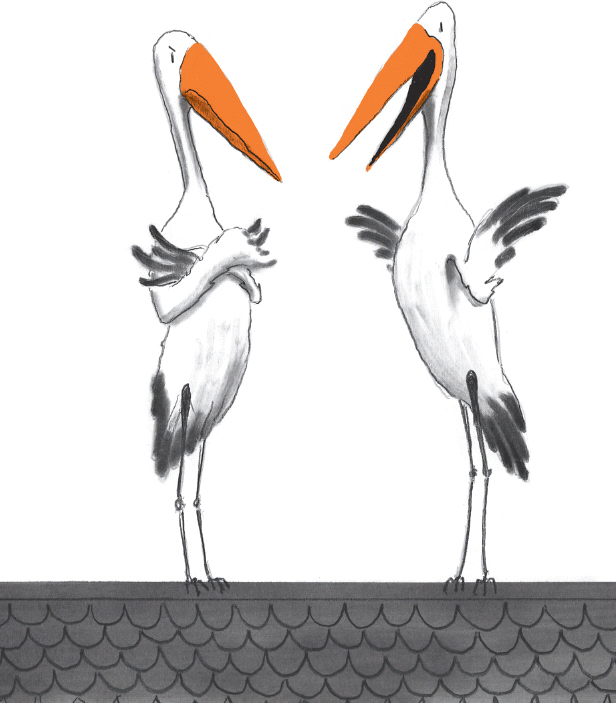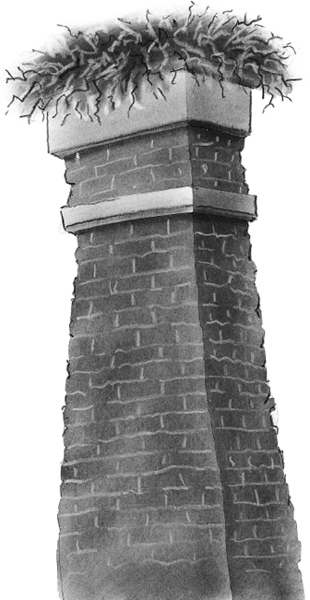The Parenting Storks
The precocious stork was only two weeks old when he asked where babies come from.
“Goodness,” said his mother. “I mean, golly, that’s quite some question.” She considered herself to be as modern as anyone, but didn’t you have to draw the line somewhere? “Let me get back to you on that,” she said, and she shoved a herring down his throat with a bit more force than usual.
Later that day the mother stork repeated the conversation to her sister, who also had a recently born chick. She meant it as a Don’t kids say the darnedest things type of story and was unprepared for the reaction she got.
“Your only son came to you for answers, and you didn’t give them to him?”
“Well, of course I didn’t,” the stork said. “Why, he’s just a baby himself. How can he be expected to understand something so complicated?”
“So children should be put off or, even worse, lied to?”
“Until they’re old enough, sure.”
“So we lie and we lie and then one day they’re just supposed to believe us?”
“That’s how it was with our family, and I never felt particularly traumatized,” the stork said. “Besides, they’re not lies so much as stories. There’s a difference.”
“Oh, is there?” spat her sister, surprised at how angry this was making her. “Give me an example.”
The stork squinted over the surrounding rooftops until something came to her. “All right. I remember seeing my first full moon and being told by Granddad that it was a distant natural satellite formed billions of years ago. And I believed it for the longest time until I learned the truth.”
“The truth?” her sister said.
“God made it,” announced the stork.
Her sister felt suddenly ill. “Who?”
“God,” the stork repeated. “He made the world and the heavens, all of it out of dust and willpower, and in less than a week! I overheard a cardinal talking about him on top of the cathedral in the square, and it was really quite instructive.”
“So is that who brings the babies? God?”
“Lord no,” the stork said. “Babies are brought by mice.”
It took a moment before her sister could speak. “Oh, sweetie,” she said, “our babies are huge, so how on earth—”
“These are special mice,” the stork explained. “Capable of lifting things much heavier than themselves. They hide until you lay your eggs, see, and then, when your back is turned, they slip the chicks inside.”
“But we build our nests on chimney tops,” the sister said. “How could a little mouse—a mouse carrying a live, vivacious newborn—climb that high? And how would he hold the chick while he did it?”
“Ever hear of magic pockets?” the stork asked.
“Magic mice pockets, sure,” her sister said, and she wondered how anyone so gullible could manage to feed herself, much less build a nest and raise a child. “And where exactly did you get this information?”
“Oh,” said the stork, “just this guy I’ve been having sex with.”
Now it was the sister’s turn to stare over the rooftops. “I know,” she said. “Why not tell your son that’s where babies come from—sex. It’s crazy, I know, but maybe it will tide him over until he’s old enough to grasp that whole magic-mouse concept.”
“You think so?”
“I do,” her sister said.
The stork flew off, and her sister, shaken, watched her go. They’d both had the same parents and had both left the nest at roughly the same time. They lived in the same town and drank the same water, so how was it that she herself had turned out to be so smart, while her poor sister was so confused?
With the conversation still fresh in her mind, she returned to her own child, a female born ten days earlier. The chick opened her beak for food, and the stork sighed. “I know you’re hungry, but Mother’s had an exhausting afternoon and needs to recharge her batteries before she puts on her slave hat.” She picked a few feathers out of the nest and flicked them over the edge. “Do you want to know why Mommy’s exhausted?”
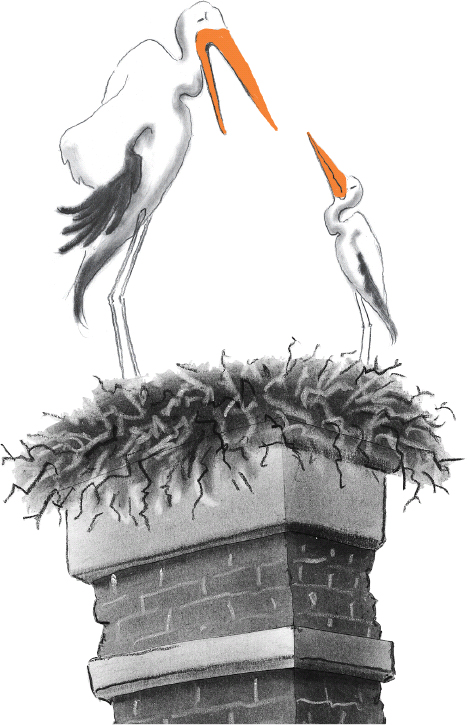
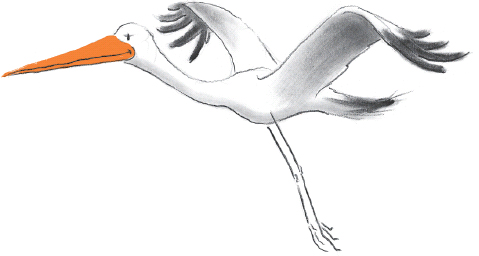
The child opened her beak even wider, and the stork let out a moan. “It really wouldn’t hurt you to take an interest in others,” she said. “I tell you I’m depressed, I tell you I feel cornered and lonely, and your response is ‘Fine. Now feed me,’ which is actually very insensitive of you. All mothers feel unconditional love for their children, but there’s a timer on it, all right. It doesn’t last forever, especially when you’re selfish.”
“Mommy’s depressed because your cousin wanted to know where babies come from. Now, this is all perfectly natural for someone your age—nothing at all to be ashamed of. Sex is a beautiful and important part of life, I explained that to you last week, when we discussed your father’s infidelity. Remember we talked about Daddy’s cheating? I told you that there were good lovers and bad ones and that your father is pathologically in-attentive to the needs of his partners. I said that you were not conceived of mutual orgasm and that it probably affected your ability to empathize, remember?”
A crow flew by, and, keeping her head perfectly still, the child followed it with her eyes.
“It’s caring too deeply that has gotten me depressed, not about you so much as your aunt, who told me with great authority that babies are brought by mice.”
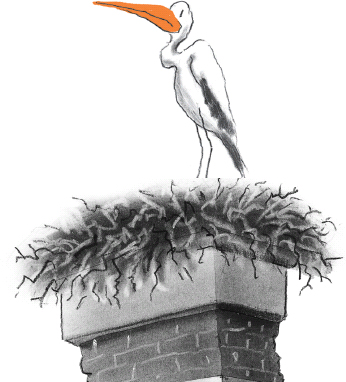
The child’s eyes widened.
“That was my reaction as well,” said the stork. She looked at her daughter and, for the first time in days, felt a splinter of hope. Then, deciding she was hungry, she flew off in search of food.
The chick watched her go and wished once again that she had a brother or sister, someone, anyone, besides her mother, who never for one moment stopped talking about herself. She’d thought since birth that she was fated to be an only child, but maybe the mice could change that. The question was: How did they work? Did they visit every nest in turn? Was it possible that they took requests and would come when charmed or summoned? The chick leaned over the edge of the nest, hoping to see one of these mice and call out to it. Then she leaned out a little farther.
